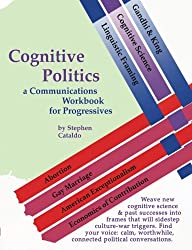— and resuscitate stifled political conversations
It’s nearly impossible to change someone’s views if you appear unwilling to change yours, if you are not curious. So how do you stay curious when voters have atrocious views: If someone is offhandedly telling you who you or your friends can marry, and voting to make their views override your choice of life partner, to hell with them. But then without curiosity you’ve lost your leverage. Below are some techniques — please add yours — to be curious, to purposefully seek out ways to be curious, when you're talking about an issue where you're just not curious whether you'll change your mind.
Experiment with any of the paths below, to be curious about something in the conversation, an exercise that can help you take a step back from the conflicts so you can connect.
Be curious how they feel.
Be curious about their underlying values — wonder if they fit Moral Foundation Theory, or not?*
Be curious about their frame and the metaphor underneath: do they see themselves on a journey, waiting in a line, fighting a battle, struggling with a disease?
Be curious like a newspaper reporter: who, what, when, where and how questions can be helpful, especially around where and when they learned what they learned.**
An honestly asked How would that work out in the world? can be very powerful.

I find this difficult in real-life conversations. For online chats, it might help to write down a conversation goal on a piece of notepaper: find a way to stay focused on a side-goal that lets your conversation dig deeper before going back to the default of arguing to change minds.
* Chapter 2 of Cognitive Politics explores Moral Foundations Theory: one of the best ways to get curious is asking about someone’s underlying values, and wondering if their values match Moral Foundations Theory or not. I find this exercise a way to basically distract myself from getting angry and anti-curious about offensive political views.
**"Why" questions tend to get you in trouble in politics, since people have often divided the world into good-guys and bad-guys, and reinforcing that doesn't help. "How does that work?" or "When did you learn that? What brought you to that view?" can sometimes open up a conversation.
